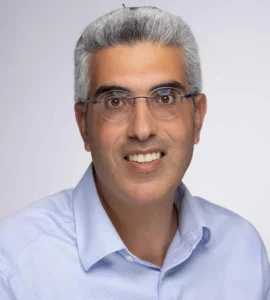Breast cancer is the most common cancer and the second leading cause of cancer deaths among women in Canada. In fact, 1 in 8 women in Canada are expected to develop breast cancer during her lifetime. In Québec alone, it is estimated that nearly 8,600 women were diagnosed with breast cancer last year and that over 1,400 women died from it.
These statistics are frightening. However, it’s important to note that breast cancer mortality in Canada has been steadily declining since its peak in the mid-1980s, and that the five-year net survival rate for breast cancer in Canadian women is now 89%. Thanks to amazing advances in research, treatments and care, breast cancer is now a highly treatable condition rather than a terminal diagnosis.
Many of these advances have been made by scientists and physicians at the McGill University Health Centre (MUHC), which treats over 800 breast cancer patients every year (one of the highest numbers in Québec) and has benefitted from the financial support of the Cedars Cancer Foundation for nearly 60 years.
Twenty-five years ago, Cedars took a leadership role in raising funds for the construction of the Cedars Breast Clinic at the Royal Victoria Hospital, which opened its doors in 2002. “It was a transformative development,” says Cedars President and CEO Jeff Shamie. “We helped create a ‘one-stop shop’ that brought together diagnostic, radiology and surgical services under one roof.”
Today, through the Cedars Breast Cancer Program, the foundation finances research, treatment and care initiatives that have a tangible impact on patient outcomes and on the patient experience. It also supports the Lymphedema Clinic, led by Dr. Anna Towers, located at 5252 de Maisonneuve – in the future home of the Cedars Whole Person Cancer Care Centre. The internationally recognized centre provides a variety of services and treatments for breast cancer patients, many of whom suffer from lymphedema as a result of surgery and radiation therapy.
As Jeff Shamie explains, “We want patients to receive the best possible treatment and care and for them to feel like they’ve been accompanied on their journey – that they’ve had help managing symptoms, navigating appointment schedules, and dealing with the physical and emotional tolls that cancer can take on them and on their family.”
The Cedars Cancer Centre at the MUHC is home to some of the most well-respected breast cancer specialists in the country, including surgical oncologists, medical oncologists, radiation oncologists, and oncology nurses. Here are just a few of the exceptional people who have changed the way in which breast cancer patients are diagnosed, treated and cared for, and whose work Cedars is proud to support.
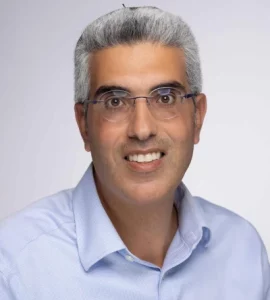 Dr. Nathaniel Bouganim is Director of the Division of Medical Oncology. He is involved in many cutting-edge clinical trials that give patients access to the latest treatments, including advanced antibody-based therapies and promising new approaches like radioligand therapy. “We are proud to be leaders in the detection and treatment of breast cancer. We are also one of the leading centres in Québec for precision oncology. By using next-generation genetic testing, we can identify specific changes in a patient’s cancer and match them with treatments designed to target those changes. This allows us to move away from a ‘one-size-fits-all’ approach and instead offer truly personalized care that gives patients the best possible chance of success.”
Dr. Nathaniel Bouganim is Director of the Division of Medical Oncology. He is involved in many cutting-edge clinical trials that give patients access to the latest treatments, including advanced antibody-based therapies and promising new approaches like radioligand therapy. “We are proud to be leaders in the detection and treatment of breast cancer. We are also one of the leading centres in Québec for precision oncology. By using next-generation genetic testing, we can identify specific changes in a patient’s cancer and match them with treatments designed to target those changes. This allows us to move away from a ‘one-size-fits-all’ approach and instead offer truly personalized care that gives patients the best possible chance of success.”
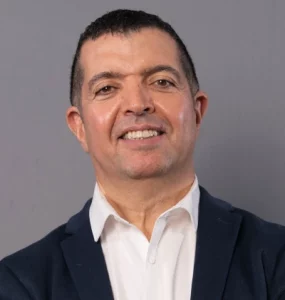 Dr. Jamil Asselah strives to get patients access to the newest breast cancer treatments through clinical trials and works hand-in-hand with researchers to bring patients better diagnostic and predictive tools. “As a medical oncologist, I’m a bit like the conductor of an orchestra. Together with my colleagues in surgery, radiation, pathology, and nursing, we decide on the best treatment — whether to cure breast cancer, reduce the risk of it coming back, or, in advanced cases, help patients live longer with the best possible quality of life. For me, it’s about giving every patient and their family not only the best treatments, but also the hope and support they need at every step of their journey.”
Dr. Jamil Asselah strives to get patients access to the newest breast cancer treatments through clinical trials and works hand-in-hand with researchers to bring patients better diagnostic and predictive tools. “As a medical oncologist, I’m a bit like the conductor of an orchestra. Together with my colleagues in surgery, radiation, pathology, and nursing, we decide on the best treatment — whether to cure breast cancer, reduce the risk of it coming back, or, in advanced cases, help patients live longer with the best possible quality of life. For me, it’s about giving every patient and their family not only the best treatments, but also the hope and support they need at every step of their journey.”
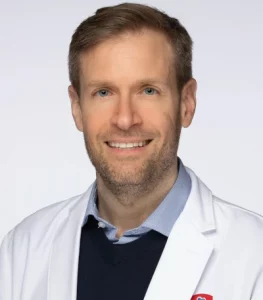 Dr. Tarek Hijal is Director of the Division of Radiation Oncology and Co-Director of the Program for Women’s Cancer Research at the MUHC. With his colleagues in surgery and radiation oncology, he introduced intraoperative radiotherapy in Québec, which allows patients to be treated with radiation therapy during surgery. His research focuses on developing innovations in radiation therapy to shorten the duration of treatment to as little as one treatment. He is also studying the possibility of using radiation alone, without surgery, for early-stage breast cancer. “Thanks to new technologies, we’re ushering in a whole new era of radiation therapy. We’re able to offer even more precise and personalized treatments, with far fewer side effects, and to radically improve the standard of care of our patients.”
Dr. Tarek Hijal is Director of the Division of Radiation Oncology and Co-Director of the Program for Women’s Cancer Research at the MUHC. With his colleagues in surgery and radiation oncology, he introduced intraoperative radiotherapy in Québec, which allows patients to be treated with radiation therapy during surgery. His research focuses on developing innovations in radiation therapy to shorten the duration of treatment to as little as one treatment. He is also studying the possibility of using radiation alone, without surgery, for early-stage breast cancer. “Thanks to new technologies, we’re ushering in a whole new era of radiation therapy. We’re able to offer even more precise and personalized treatments, with far fewer side effects, and to radically improve the standard of care of our patients.”
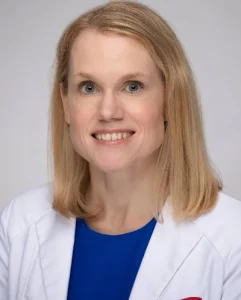 Dr. Valérie Panet-Raymond is a radiation oncologist. She collaborates within a multidisciplinary team dedicated to delivering compassionate, evidence-based care for women with breast cancer. Her academic and clinical focus is on advancing innovative approaches in breast cancer radiotherapy, with the goal of improving patient outcomes and quality of life. “I am dedicated to providing every person with breast cancer precise and compassionate care that not only controls the disease but supports them in moving forward with strength and confidence. At the same time, I am driven to advance the field of breast radiotherapy, pushing boundaries in research and innovation, so that today’s treatments continue to evolve into even better options for the women of tomorrow.”
Dr. Valérie Panet-Raymond is a radiation oncologist. She collaborates within a multidisciplinary team dedicated to delivering compassionate, evidence-based care for women with breast cancer. Her academic and clinical focus is on advancing innovative approaches in breast cancer radiotherapy, with the goal of improving patient outcomes and quality of life. “I am dedicated to providing every person with breast cancer precise and compassionate care that not only controls the disease but supports them in moving forward with strength and confidence. At the same time, I am driven to advance the field of breast radiotherapy, pushing boundaries in research and innovation, so that today’s treatments continue to evolve into even better options for the women of tomorrow.”
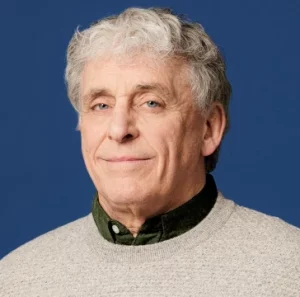 Dr. David Fleiszer has enjoyed a long and exemplary career as a surgical oncologist and has treated thousands of women for breast cancer at the MUHC. He was the driving force behind the creation of the Cedars Breast Cancer Clinic and was its director for many years. He pioneered the Online Virtual Patient Program, which enhances medical teaching and learning and he has received numerous awards for excellence in teaching and patient education. Known for his compassionate bedside manner, he has received over 300 ‘Hospital Hero’ nominations from his patients. “Innovation, education and communication are as essential for achieving medical advances as they are for providing the highest level of patient care.”
Dr. David Fleiszer has enjoyed a long and exemplary career as a surgical oncologist and has treated thousands of women for breast cancer at the MUHC. He was the driving force behind the creation of the Cedars Breast Cancer Clinic and was its director for many years. He pioneered the Online Virtual Patient Program, which enhances medical teaching and learning and he has received numerous awards for excellence in teaching and patient education. Known for his compassionate bedside manner, he has received over 300 ‘Hospital Hero’ nominations from his patients. “Innovation, education and communication are as essential for achieving medical advances as they are for providing the highest level of patient care.”
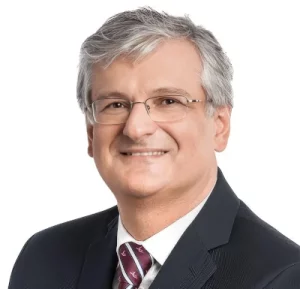 Surgical oncologist Dr. Sarkis Meterissian is a Professor of Surgery and Oncology at McGill University and the Director of the MUHC Breast Centre. His research focuses on the diagnosis, pathogenesis and prognosis of breast cancer. In addition, Dr. Meterissian is researching the impact that life coaching could have on helping women return to an active life and recover socially and emotionally from a breast cancer experience. “We have become very good at the treatment part — so good that almost nine out of ten patients survive breast cancer. But these women have names, lives, families. They’re individuals. We must not only cure them so they will live. We must support them so they can once again thrive.”
Surgical oncologist Dr. Sarkis Meterissian is a Professor of Surgery and Oncology at McGill University and the Director of the MUHC Breast Centre. His research focuses on the diagnosis, pathogenesis and prognosis of breast cancer. In addition, Dr. Meterissian is researching the impact that life coaching could have on helping women return to an active life and recover socially and emotionally from a breast cancer experience. “We have become very good at the treatment part — so good that almost nine out of ten patients survive breast cancer. But these women have names, lives, families. They’re individuals. We must not only cure them so they will live. We must support them so they can once again thrive.”
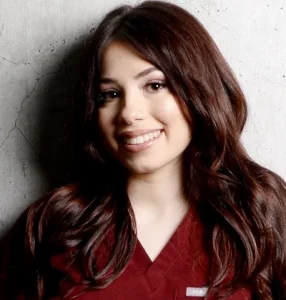 At the Cedars Cancer Centre, oncology pivot nurse Alexia Dimas plays a vital role in supporting breast cancer patients throughout their care journey. Working within a multidisciplinary team, she helps patients navigate the complexities of the health-care system by providing education about their diagnosis and treatments, assisting with symptom and side-effect management, and connecting them to essential support services. “It is a privilege to be an advocate for these patients. As their point of contact during one of the most difficult times in their lives, we witness remarkable resilience every day. Each patient brings their own story, and it is inspiring to see them take control of their health journey.”
At the Cedars Cancer Centre, oncology pivot nurse Alexia Dimas plays a vital role in supporting breast cancer patients throughout their care journey. Working within a multidisciplinary team, she helps patients navigate the complexities of the health-care system by providing education about their diagnosis and treatments, assisting with symptom and side-effect management, and connecting them to essential support services. “It is a privilege to be an advocate for these patients. As their point of contact during one of the most difficult times in their lives, we witness remarkable resilience every day. Each patient brings their own story, and it is inspiring to see them take control of their health journey.”

